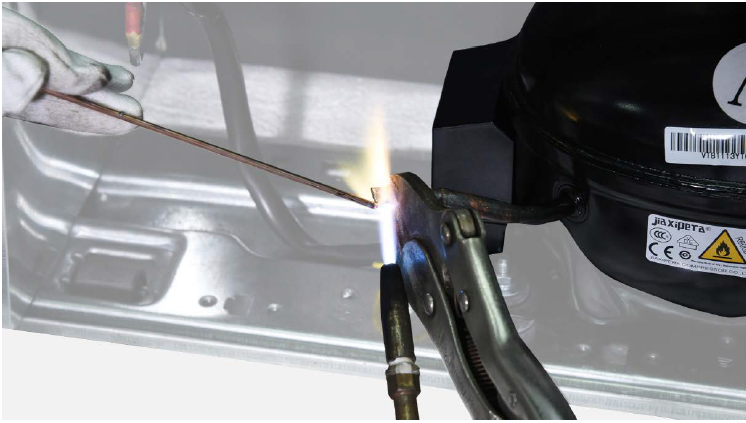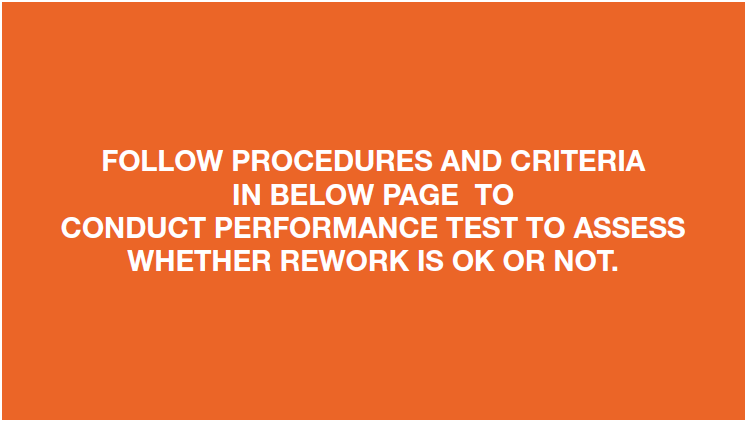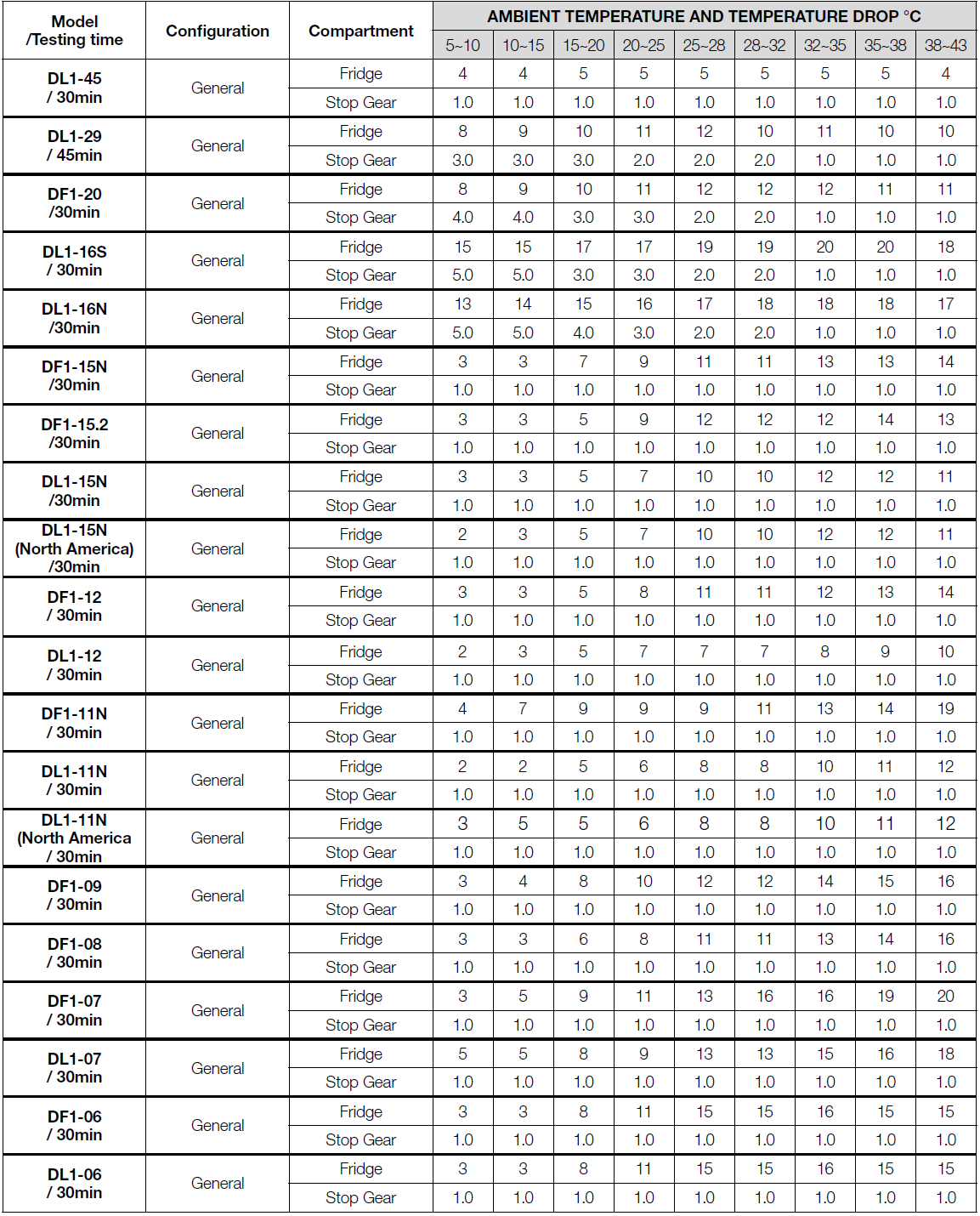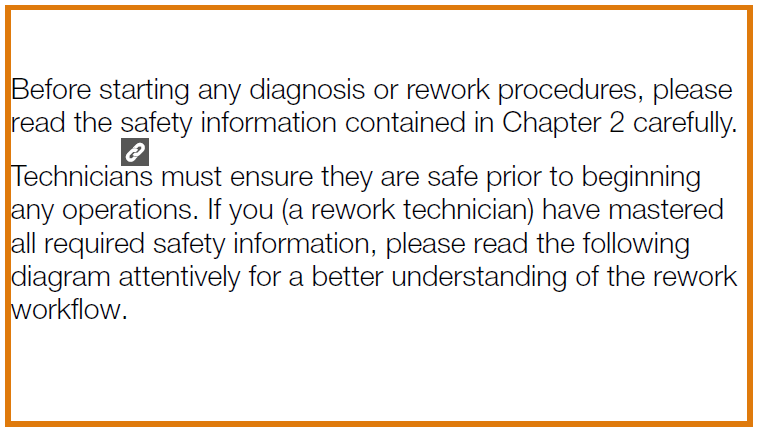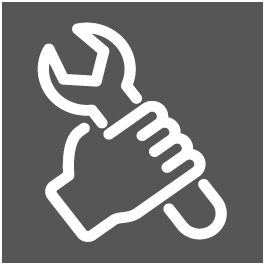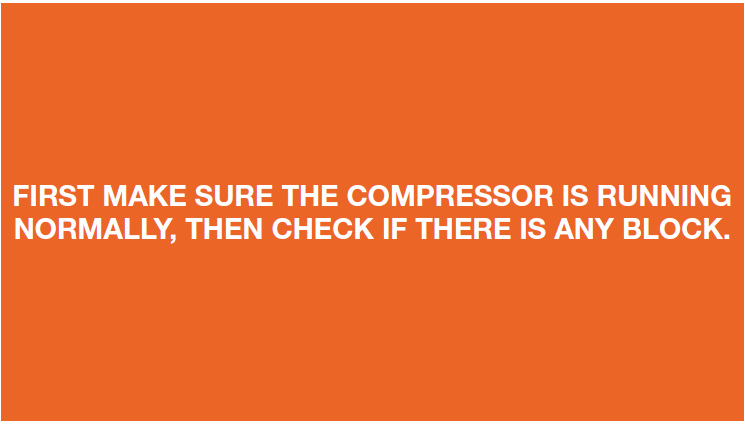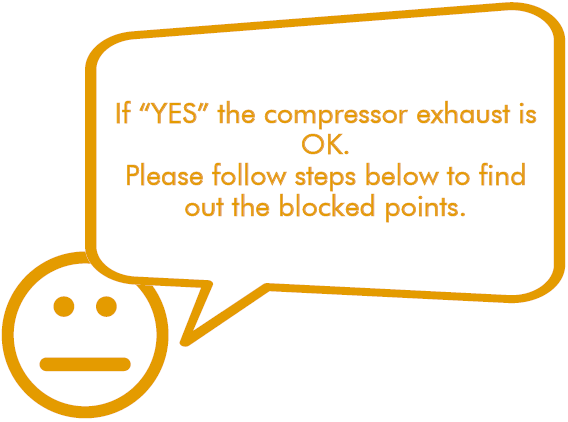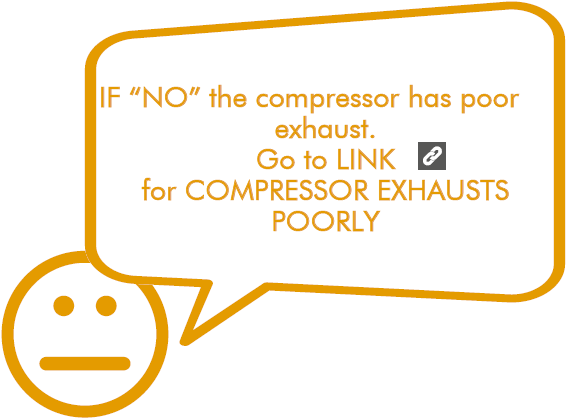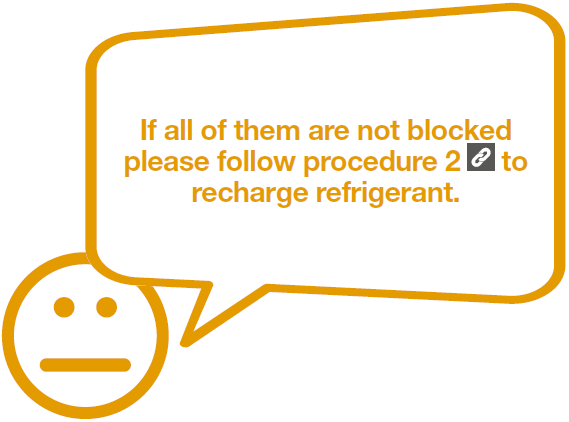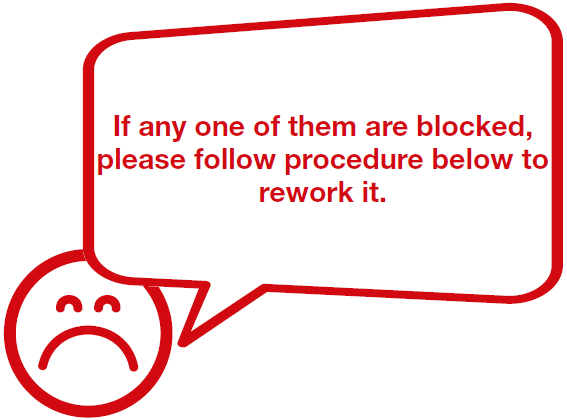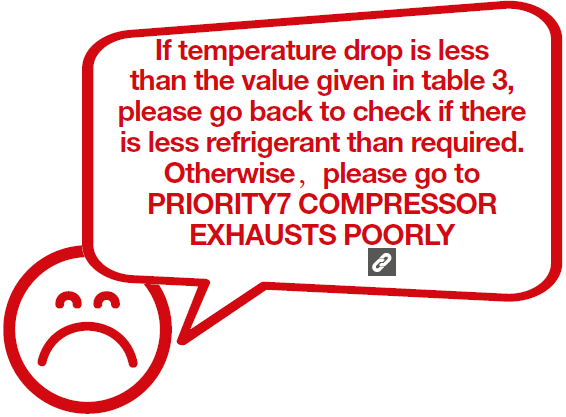
Step 1
Cut off capillary to discharge refrigerant.
Step 2
Discharge all refrigerant toward the exhaust vent.
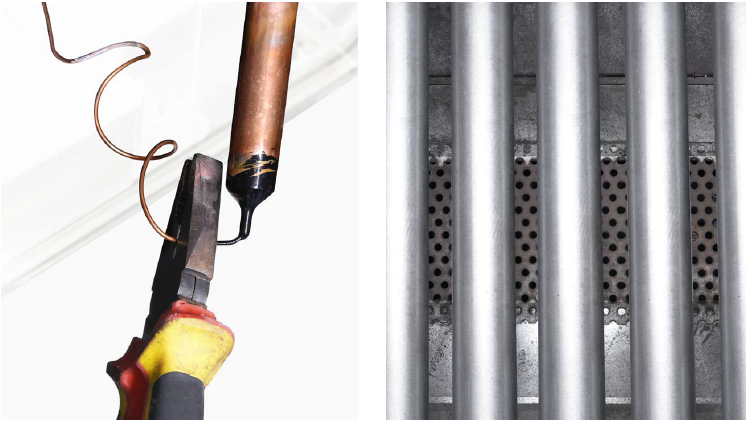
Step 3
Cut off exhaust pipe and
suction pipe.
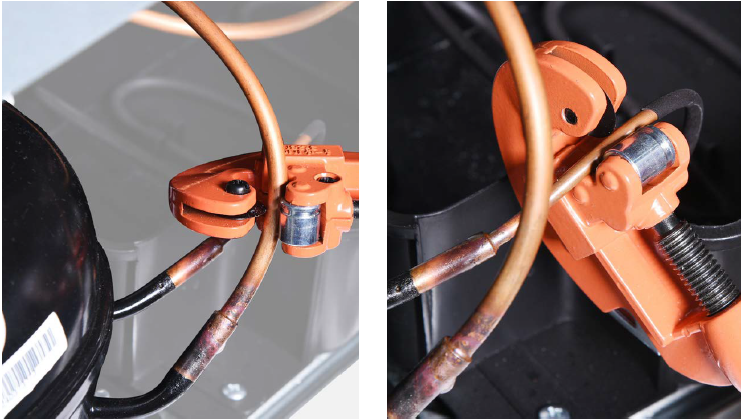
Step 4
Power up the compressor and feel the exhaust pressure from the exhaust pipe with a piece of paper.
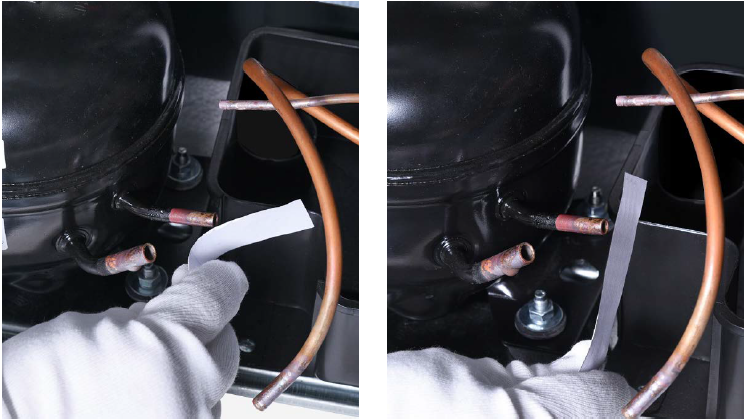

DIAGNOSIS 1
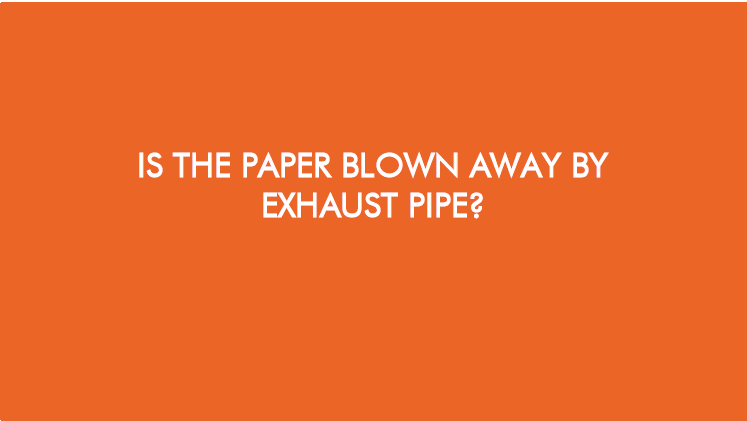

CHECK AND TEST 2
Step 1
Braze the joints of suction and exhaust pipes.
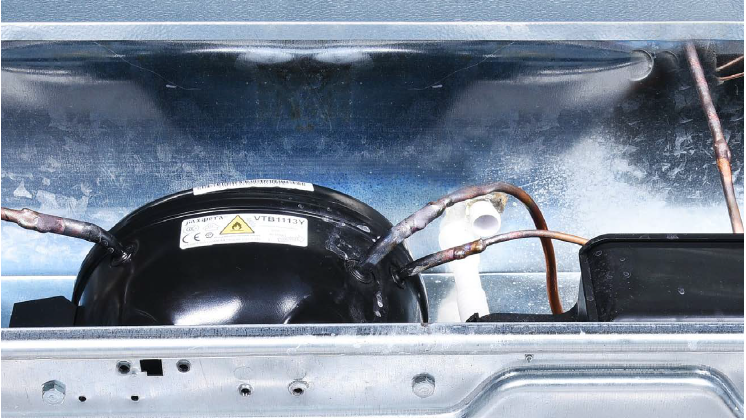
Step 2
Melt brazing material with flame and pull out
processing tube with pliers.
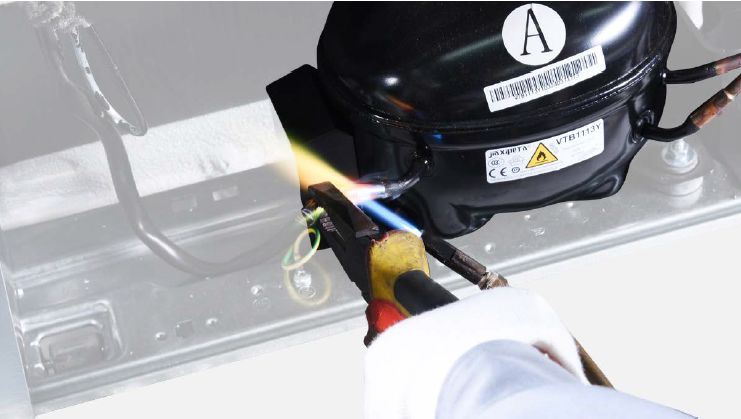
Step 3
Re-braze a copper tube onto processing tube of
compressor. Please find more details of brazing requirements, on 10.4 Annex B1.
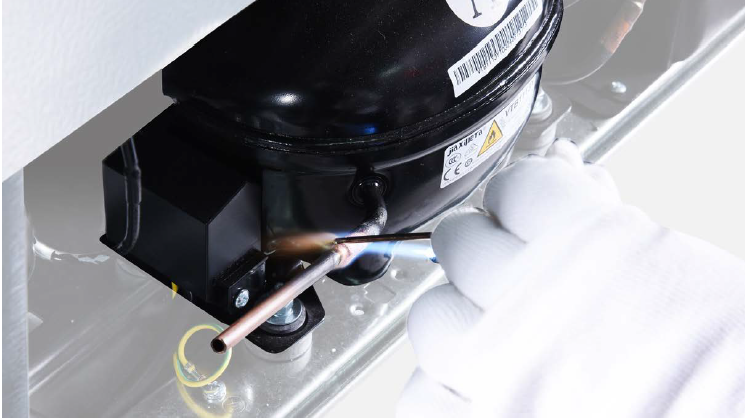
NOTE
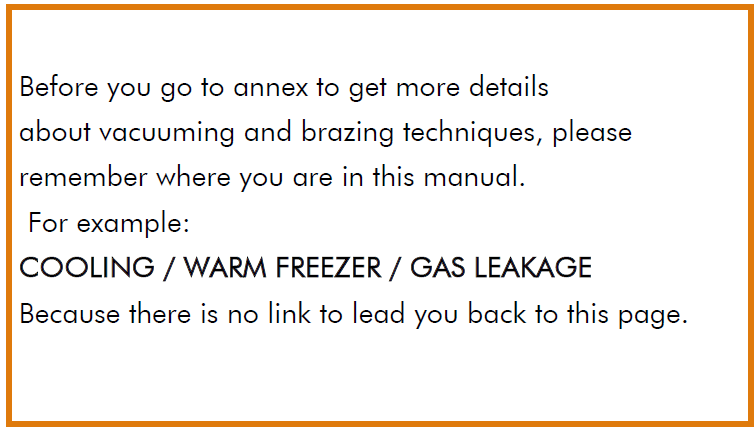
Step 4
Inject nitrogen (1.57Mpa) through quick connector into pipe for at least 3 min to blow remaining refrigerant away.
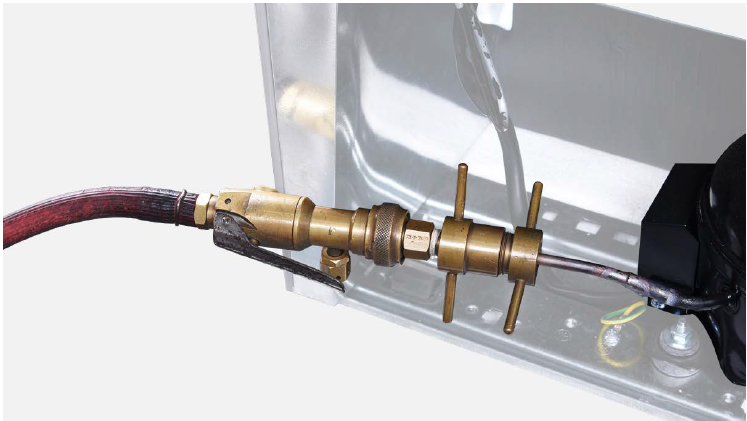
Step 5
Check to see if gas pressure from capillary is
normal or not.
Note:
Measure the 2 ends of cutting points
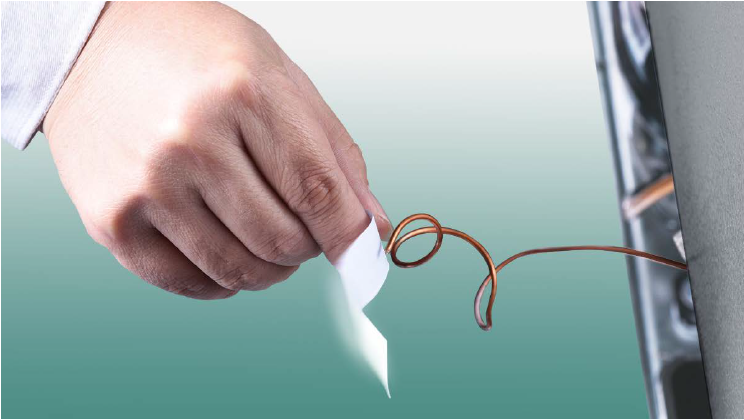

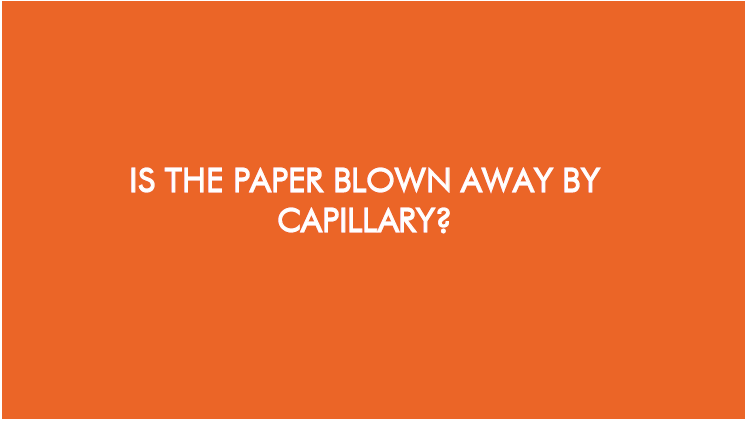

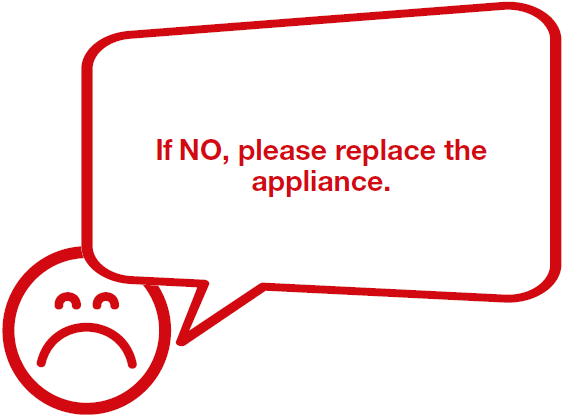
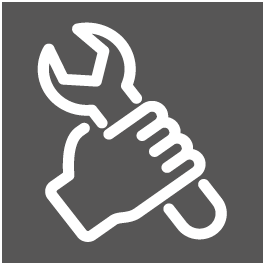
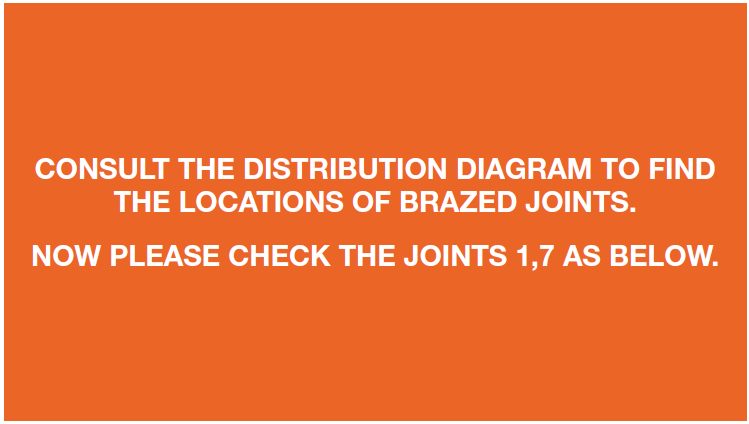
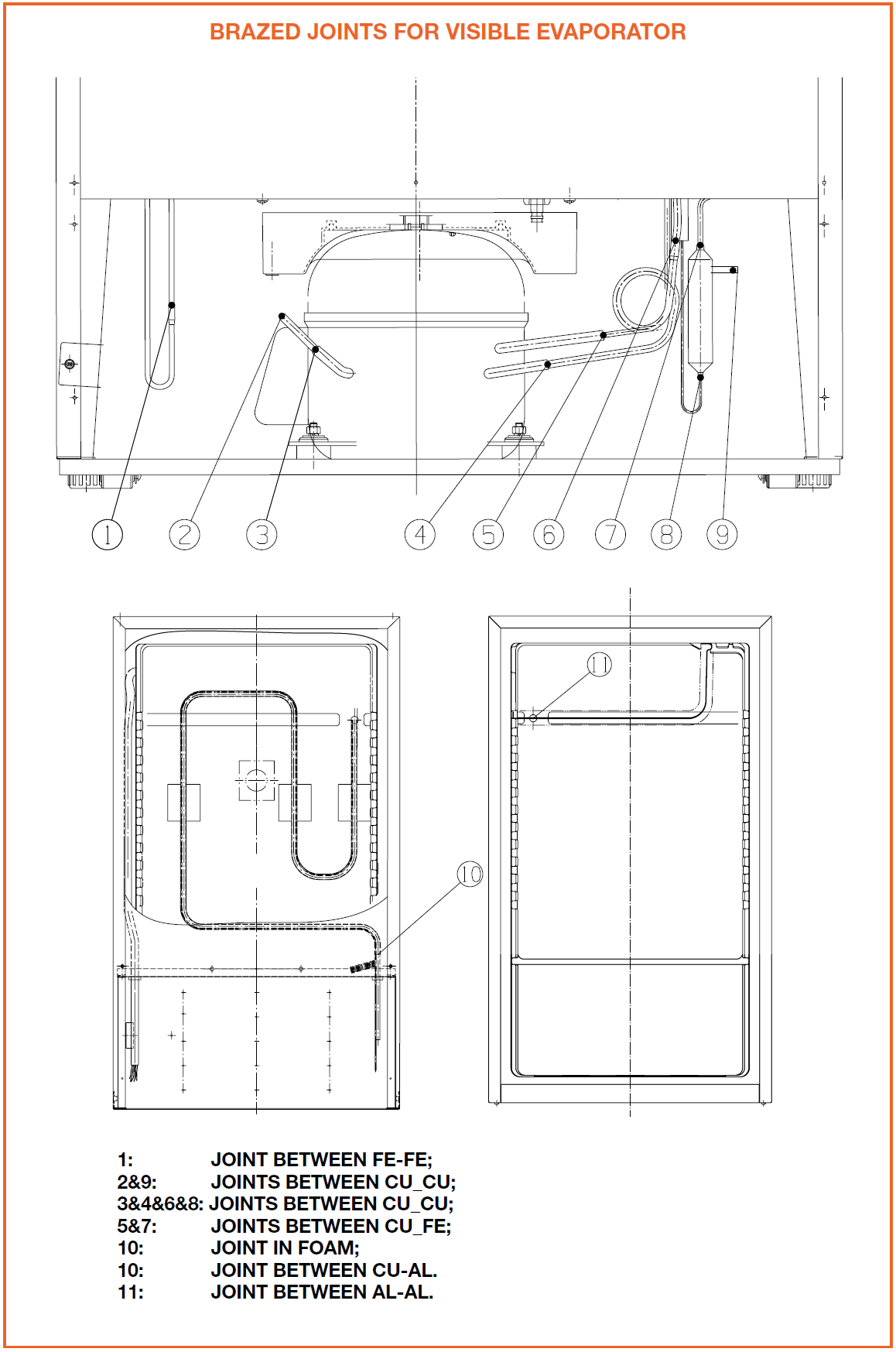
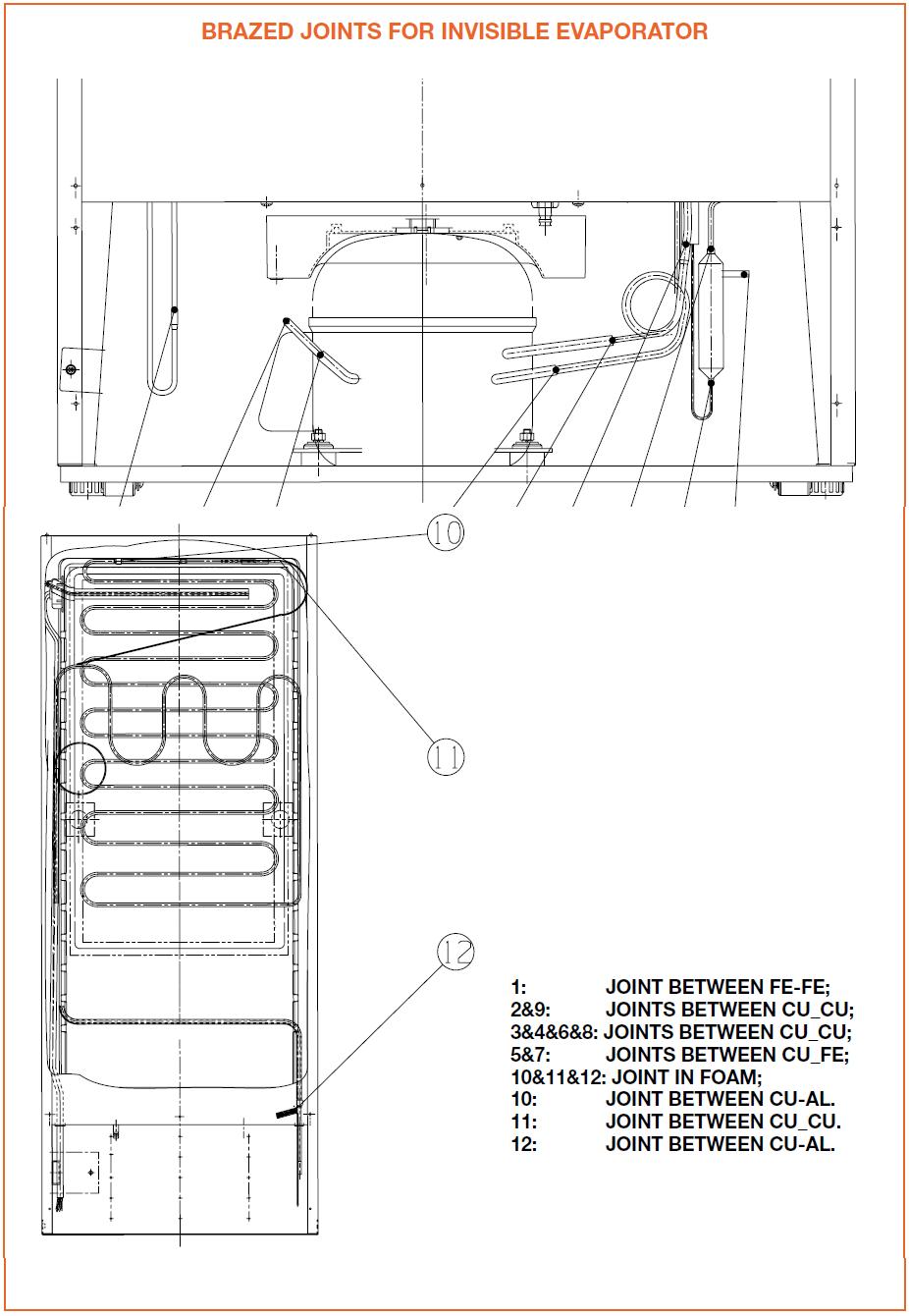
Step 1
First, cut off end closed to exhaust end (A in
below picture).
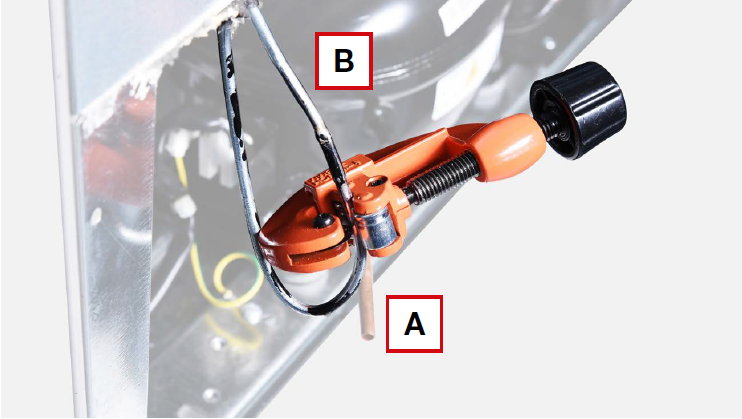
Step 2
Then, cut off the end closed to suction end, and check whether the pressure is reduced or not.
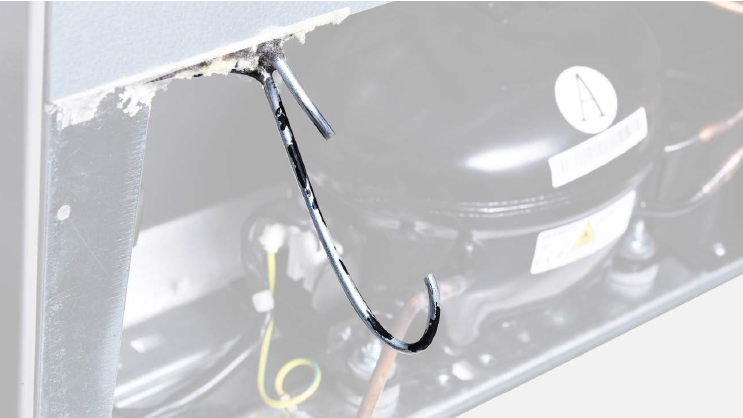

DIAGNOSIS 3
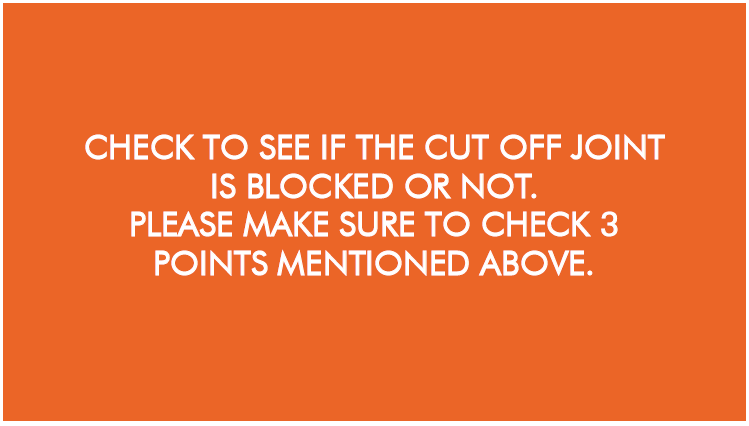
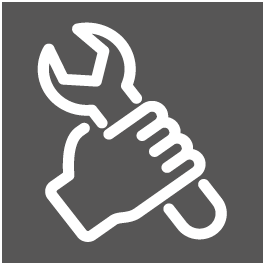
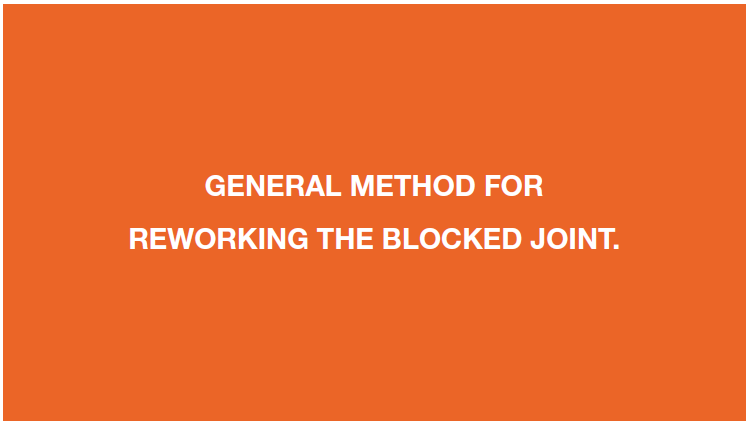
Step 1
Clean paint off of brazed joint of drying filter.
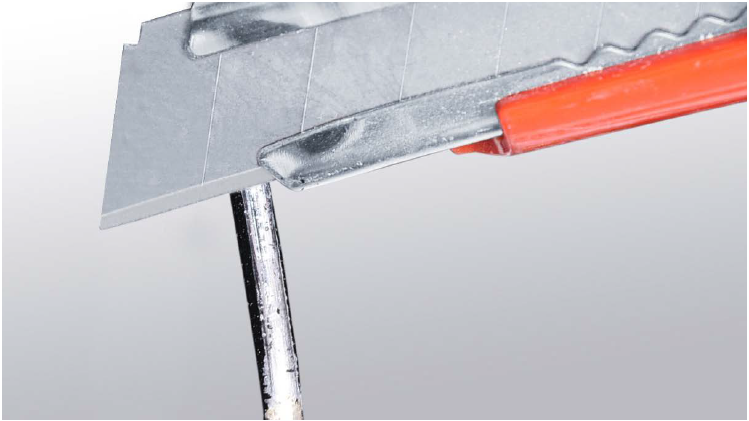
Step 2
Use a larger copper tube to connect 2 ends of
brazed joint.
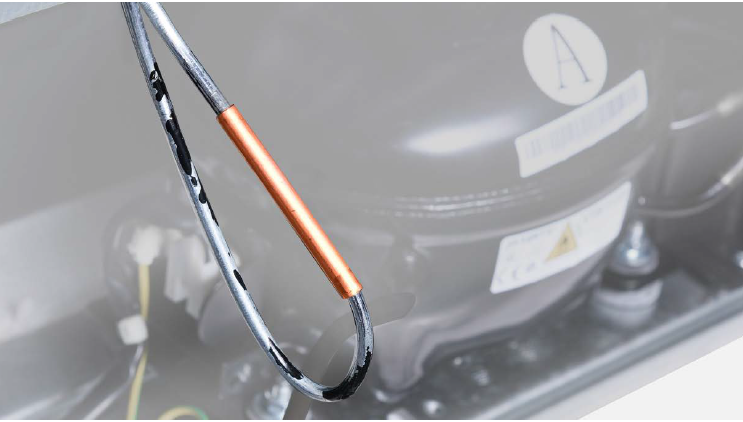
Step 3
Braze the 2 ends.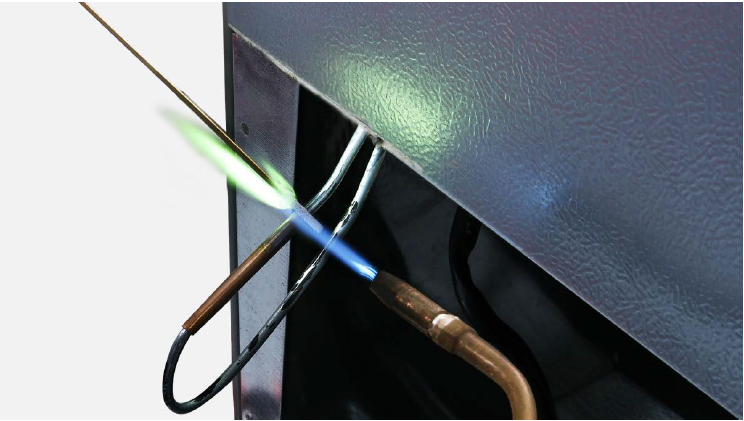

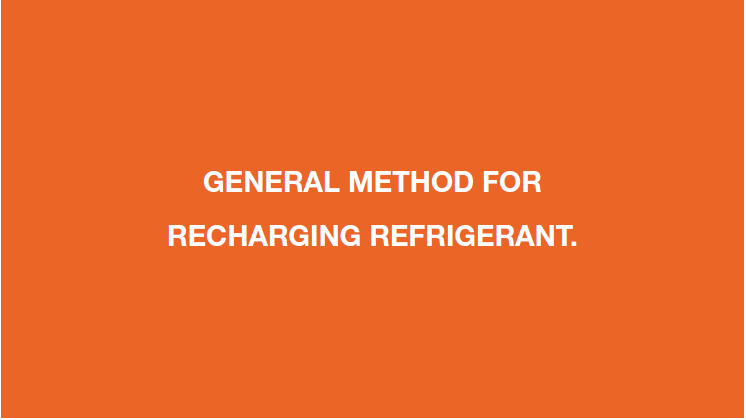
Step 1
Clean paint off of brazed joint of drying filter.
Step 2
Cut off capillary and shake to remove the cut
end.
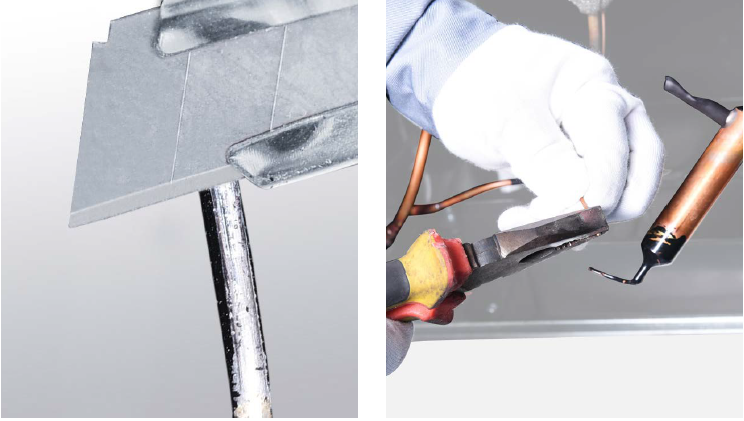
Step 3
Braze on a new drying-filter.
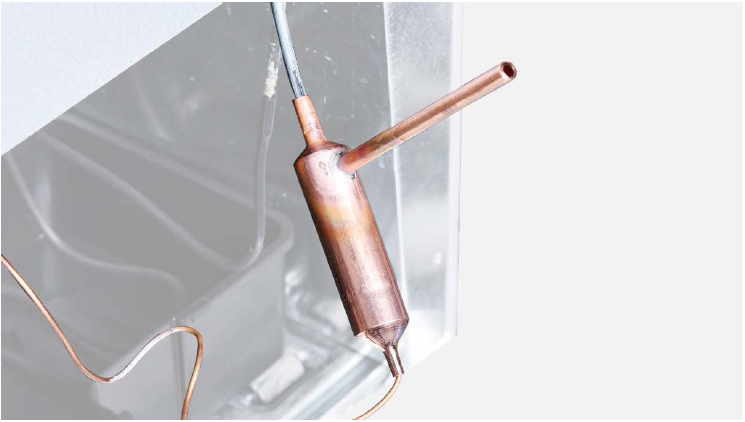
Step 4
Inject nitrogen (1.57Mpa) through quick connector into pipe for at least 3 min to blow remaining refrigerant away.
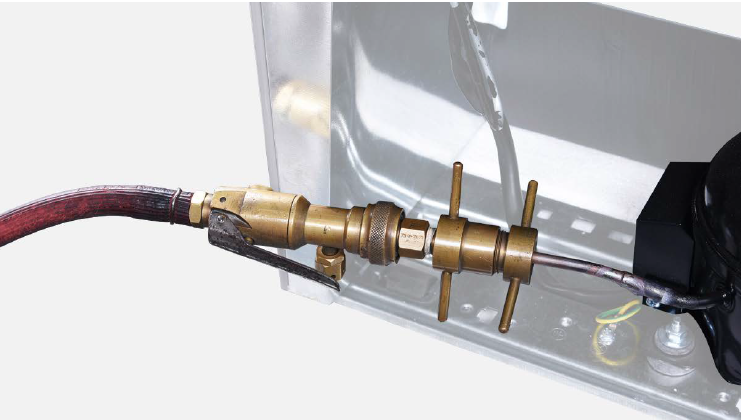
Step 5
Add quick connector onto processing pipe of
drying-filter.
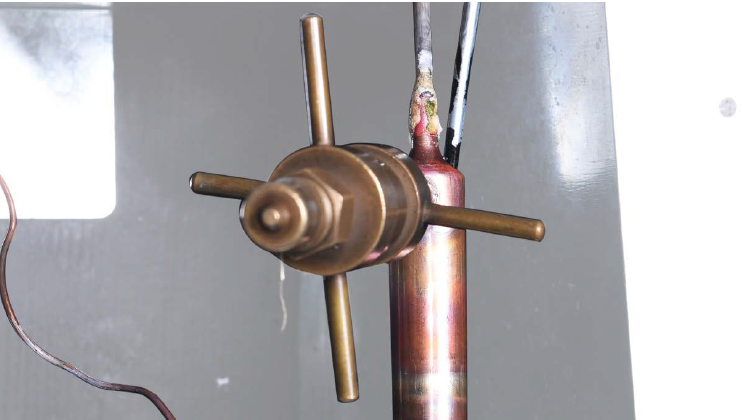
Step 6
Perform a leakage test on all re-brazed joints
of drying-filter and compressor processing pipe.
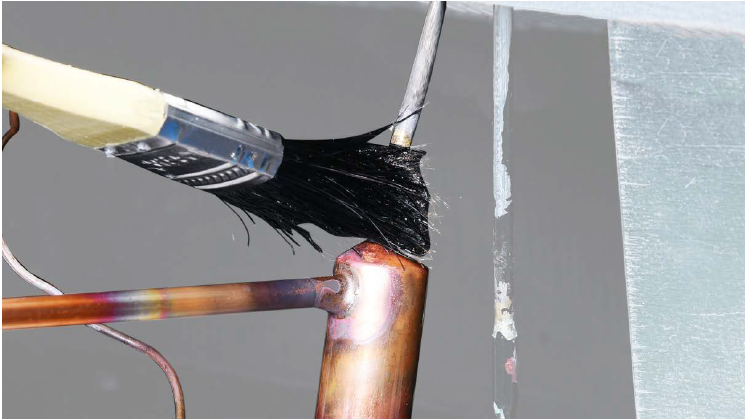
Step 7
Vacuum and recharge. Please get more details
of vacuuming and gascharging requirements
on 10.5 Annex B2
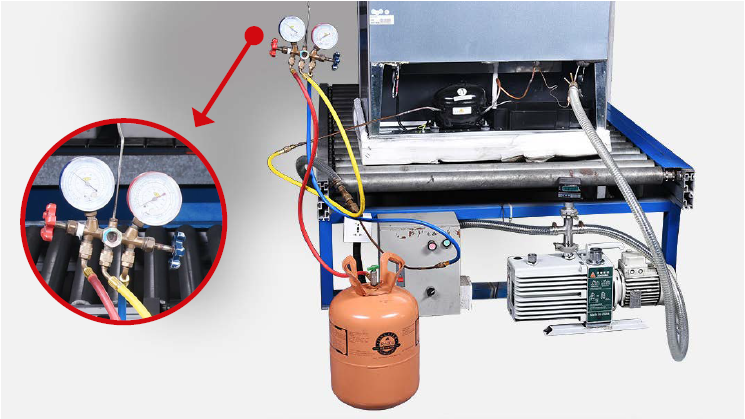
Step 8
Block processing pipetwice by locking pliers.
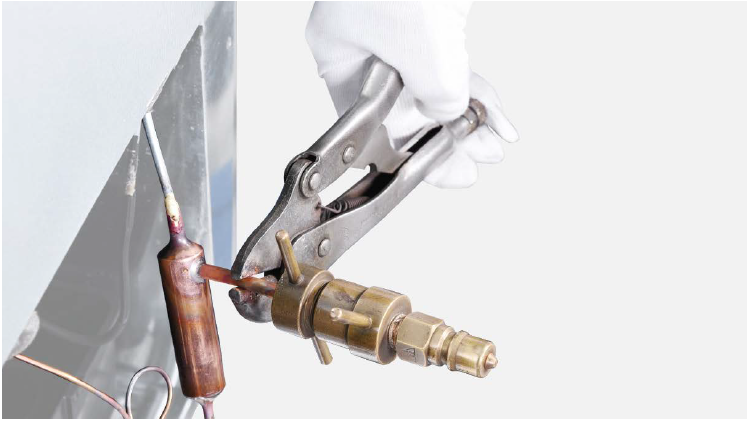
Step 9
Leave locked pliers attached to second
block and shake to cut off the remaining pipe.
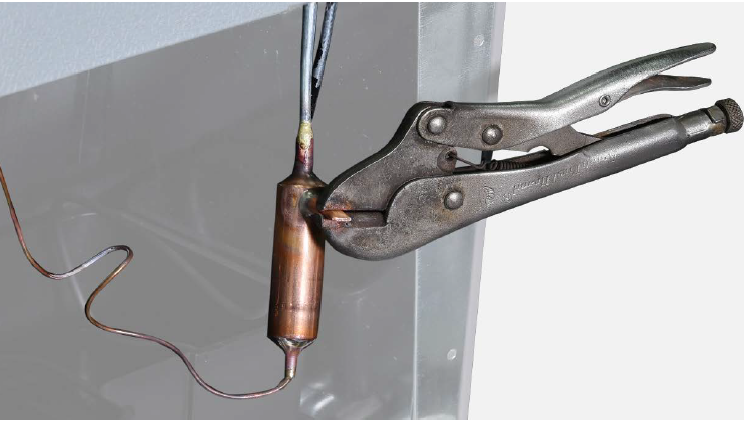
Step 10
Braze the ends and remove the pliers.
